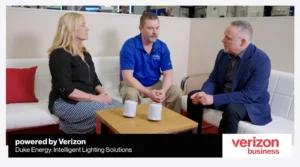How Is DAF Sludge Put to Beneficial Use?
How Is DAF Sludge Put to Beneficial Use?
Contaminants in the form of solids, fats, oils, and greases are common in a variety of wastewater streams, particularly in the food industry, and treatment applications for this wastewater need a way to remove these contaminants efficiently.
Fortunately, dissolved air flotation (DAF) sludge dewatering and filtering solutions make that possible. We covered this in our previous blog on DAF sludge, helping you get familiar with exactly what it is and how it’s collected.
Now, let’s explore how DAF sludge can be put to beneficial use and the critical role Denali Water Solutions plays in this waste conversion.
How Does DAF Skimming Work?
To give you a quick refresher, the general operation of DAF systems is rather simple. Dissolved air is injected into the wastewater stream and forms bubbles, typically alongside coagulants or other agents that encourage solid contaminants to bind to that air.
When this binding occurs, these solids float to the surface of the wastewater, forming a sludge on the top of the stream.
This sludge can then be skimmed off, removing the contaminants from the wastewater stream.
However, this removal doesn’t represent the totality of a beneficial disposal solution. In some cases, these residuals wind up in landfills, failing to fulfill a beneficial purpose and contributing to contamination elsewhere.
Instead, Denali Water Solutions has helped engineer a more beneficial and cyclical solution.
Denali’s Role in Recycling DAF Skimmings and Other Food Processing Residuals
Something has to be done with this sludge, and traditional solutions, such as landfilling and incineration, simply aren’t ideal. At worst, they’re contributing to contamination elsewhere, and, at best, rendering and incineration can be costly and don’t promote sustainability. Finally, the beneficial properties of the sludge are lost.
Denali is one of the largest providers of beneficial use solutions in the United States, facilitating waste conversion that contributes directly to better nutrient value and soil health for participating agricultural operations. Put simply, land application is often a much better option, putting DAF sludge to work positively.
Modern farming is intense, depleting soils of critical organics that need to be replenished for optimal growth and production. Commercial fertilizers typically do not add organics to the soil and can increase the risks of nitrates migrating toward sensitive wetlands and water basins when compared to organic-based fertilizers.
When DAF sludge and other natural products are used in place of these commercial fertilizers, the soils’ ability to retain nutrients and plants’ ability to uptake them are both boosted while our natural resources are protected.
How Denali Makes Beneficial Use Practical
Denali provides around-the-clock service to food processors, leveraging a large fleet of trucks, trailers, farm equipment, dredges, and dewatering equipment to engage in beneficial use initiatives.
In the case of DAF sludge, this translates directly into an ability to utilize this organic waste as a nutrient-rich soil amendment.
On-site dewatering and other services provide a turnkey way to convert DAF sludge into an easier-to-handle material, and organic material can then be either converted to compost and organic products or utilized in land application initiatives, capturing and putting to work the value of the material’s nutrients to help balance soil properties and optimize crop yield and health.
Denali is also constantly innovating ways to make land application better for all involved, and our management programs are professionally managed, and we emphasize best management practices and continuous improvement in everything we do. For example, Denali practices subsoil injection for odor suppression.
Beneficial use contributes directly to a circular economy in the agricultural and food processing industries of the United States, engineering a more sustainable solution unmarred by contributions to the country’s rapidly filling landfills.
To learn more about Denali’s role in recycling DAF Sludge and other beneficial use solutions, visit https://www.denaliwater.com/services/beneficial-use/.
—
Want to learn more about Denali? Watch below.









